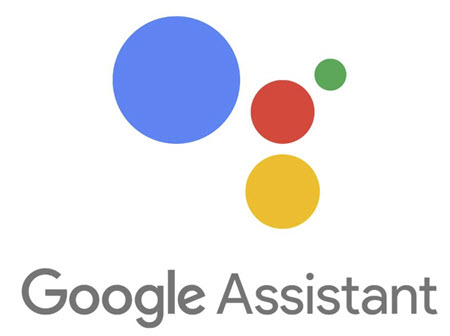
Part 1: Ambient Computing – Buzzwords That Are Changing Your World
You don’t notice an automatic door when it opens.
Google, Amazon, and Apple want to make it so natural to interact with their devices that you don’t even notice that you’re doing it. We’ll be surrounded by devices. The more there are, the less we’ll notice them.
Google explicitly used the term “ambient computing” to frame its vision at a hardware launch last month. Amazon and Apple haven’t used that term yet, but they share the same goal: to envelop us in a cocoon of devices and services and draw us into their ecosystems.
Google, Amazon, and Apple are each ahead in a different area, and each one is racing to fill gaps in their ambient computing systems.
Google has the clearest vision and the best chance to succeed. In the next article, we’ll look at what Amazon and Apple are doing to carve their own niches.

Google’s business is advertising, with revenue from hardware sales and services on the side.
Google’s vision is a world in which you turn to Google Assistant to answer questions and help with everyday tasks, just as naturally as you turn to Google today to find a website. If we learn to do that, by an extraordinary coincidence Google will maintain its dominance of online advertising and increase its sales of devices and services. It’s a win-win!
Google Assistant is far ahead of the other assistants in voice recognition, and no one can match Google’s ability to answer general questions. (Amazon was forced a few weeks ago to ask for users’ help with questions that Alexa can’t answer – questions that Google Assistant answers without hesitation. Embarrassing!) Google has deep knowledge about us and is doing industry-leading work with AI, trying to predict our behavior and be helpful without crossing the creepy line.
Ben Thompson of Stratechery put it this way:
“(Ambient computing) is a vision that Google is uniquely suited to pursue. The company is a services company incentivized to serve the maximum number of customers no matter the means (i.e. device), and it already has a head start in providing services that contain and accumulate essential information about people’s lives.”
Google’s strategy, then, is to make it natural for you to use Google Assistant, regardless of whether or not you’re familiar with the name “Google Assistant.”
For many people, it will start in the home as you learn to say, “Hey, Google.” There is a full range of Google Home devices, more or less comparable to Amazon Echo devices – not as well known, but Google’s home devices tend to create evangelists when people try them because they’re far more useful and fun. It has become second nature for my wife and me to ask Google for answers out loud over dinner. If you store your pictures in Google Photos – and that’s now the default for most people – the rotating display of photos on the kitchen counter or bedside table by a Google Home device with a screen is irresistible.
It will be easy to fill your home with Google devices. The hockey puck-sized Google Home Mini has a list price of $49 but will almost always be available at significant discounts and will frequently be given away or bundled with something else. Google is pushing its Nest devices – security cameras, doorbells, thermostats, and more – and Google Assistant will be integrated into more of them all the time. The next generation of Google’s mesh network devices includes access to Google Assistant from each node.
Outside the home, Google starts with two and a half billion Android phones in our pockets. Google has done amazing engineering, nearly magical, to make Google Assistant do much work on the phone instead of sending everything up to the cloud, so that even inexpensive phones can handle voice recognition and do many tasks dramatically faster. If you’re not using Google Assistant on your phone yet, try it. (Easiest way to start: download the Google Assistant app on iPhones and Android phones. Talk to it instead of typing!)
Google is working with car manufacturers to embed Android Auto in new cars, and setting up connections to Google Assistant in Google earbuds, Sonos speakers, Bose headphones, Samsung TVs, Philips Hue lightbulbs, Xbox game consoles, and more. Google is partnering with anyone and everyone to make it possible to use Google Assistant for everyday tasks. What can you do?
- Airlines: you may already be able to check into flights by saying, “Hey, Google, check in to my flight.”
- Hotels: many chains are partnering with Google to book hotel rooms with a spoken request.
- Google Maps: Google Assistant is now fully integrated. You can speak your destination to pull it up in Google Maps.
- Weather, traffic updates, flight status, phone numbers, reminders, music, alarms, reservations, recipes, home control, and much more.
Google has not been successful with smartwatches, even as Apple steadily increases sales of Apple Watch. Google announced a few days ago that it is acquiring Fitbit to make a new push into wearables. My guess: Google will be respectful of the Fitbit brand and not disturb its loyal users too quickly, but Google Assistant will be built into the next generation of Fitbits, and Fitbit technology will be built into a new generation of Google smartwatches.
One of Google’s gaps is brand recognition of its hardware; it lags far behind Amazon’s Echo line, and of course, nothing comes close to the name recognition of Apple iPhones and iPads. That’s why it’s helpful that Google finally will have its Pixel phones available in the stores of all four major US phone carriers. Google is traditionally weak in promoting its hardware products; it feels that building better stuff ought to be enough. If Google takes this battle seriously, you can expect more advertising of Google hardware online and in social media.
Google intends Google Assistant to be everywhere. That will only succeed if businesses and consumers trust Google. Notice the press coverage carefully: articles about evil technology and regulation invariably refer to “FacebookandGoogle” as the companies to be reined in, but the specific examples are always about Facebook’s bad behavior, seldom about anything specific that justifies demonizing Google. Google has not been perfect, but it is working hard to preserve privacy, keep its data secure, and not participate in the orgy of data sharing in the shadow economy run by data brokers. I put it this way last year:
As long as a big company like Google keeps your information to itself, only sharing it with you, that’s not an invasion of privacy. It only becomes an invasion of privacy if they share your personally identifiable information with others. Facebook has done that far too often. So far, Google has been trustworthy.
Ambient computing is not a race that will be won by one company, with the others retiring from the field. Google, Amazon, and Apple will be promoting their connected devices and jockeying for advantage for the foreseeable future. Google could be the dominant force, but it has to conquer political obstacles and its own culture to succeed.
